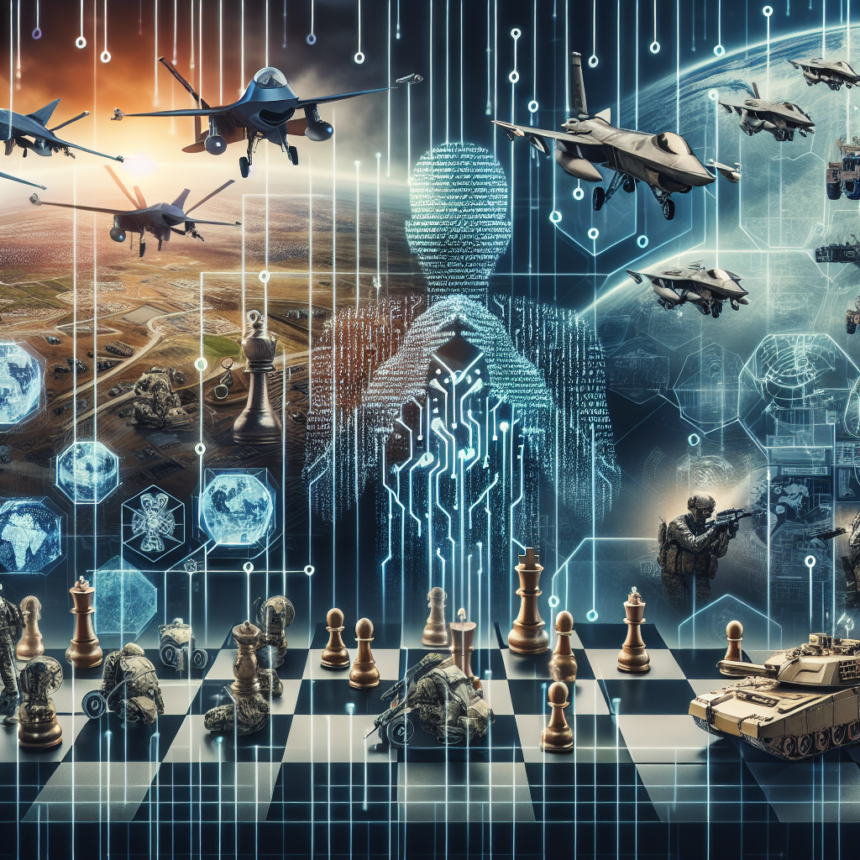The landscape of warfare has dramatically evolved over the past century, with technological innovation serving as a key driver behind these changes. Among the most significant advancements reshaping military tactics and strategies is artificial intelligence (AI). AI’s growing influence in defense is not merely a fleeting trend but a foundational revolution that could redefine how nations engage in combat, conduct intelligence operations, and maintain national security in the 21st century.
Understanding AI in Warfare
Artificial intelligence, at its core, refers to the capability of machines to perform tasks that typically require human intelligence. This includes learning, reasoning, problem-solving, perception, and language understanding. In a military context, AI systems can analyze vast amounts of data from various sources, making them indispensable in executing a wide range of functions—from logistics to combat scenarios.
Data Analysis and Decision Making
One of the primary benefits of AI in military applications is its unparalleled ability to process and analyze data. In contemporary warfare, battlefields generate enormous quantities of information—from satellite imagery to drone surveillance, troop movements to environmental conditions. AI algorithms can sift through this data rapidly, providing intelligence personnel and military commanders with actionable insights.
For instance, predictive algorithms can evaluate patterns in enemy movements, enabling proactive measures rather than reactive strategies. This capability enhances situational awareness and augments decision-making processes, reducing response times and improving the effectiveness of military operations.
Autonomy and Robotics
Another transformative impact of AI is seen in the development of autonomous military systems, including drones, ground vehicles, and even naval ships. These unmanned systems can operate independently or with minimal human oversight, carrying out surveillance, reconnaissance missions, or targeted strikes.
The use of AI-powered drones for intelligence gathering, bombing missions, or even automated logistics supports modern military strategy by enhancing deterrence and reducing human risk in combat scenarios. These technologies can also conduct missions in environments too dangerous for human soldiers, offering a significant strategic advantage.
Enhanced Training and Simulation
AI is also playing a crucial role in military training and simulation exercises. Advanced AI systems can create highly realistic training environments, tailoring scenarios based on individual learning patterns and performance metrics. This ensures that military personnel are better prepared for the complexities of real-world combat, improving readiness while reducing training costs.
Moreover, AI-driven simulations can analyze the outcomes of various tactical approaches, allowing military planners to identify optimal strategies before deployment, ultimately leading to more informed and effective decision-making.
Cyber Warfare and Defense
The increasing reliance on digital technologies has also made military networks vulnerable to cyber threats. AI plays a critical role in enhancing cybersecurity measures, identifying network intrusions, and mitigating potential attacks before they escalate into significant breaches. This is essential in an era where traditional battlefield strategies are supplemented by the need to protect information and communication infrastructures.
AI-driven cybersecurity systems can learn from previous attacks, adapting to new tactics employed by adversaries and fortifying defenses. As nations enhance their offensive and defensive cyber capabilities, the implications for global military parity cannot be overstated.
Ethical Considerations and Challenges
Despite the benefits, the integration of AI in military operations raises significant ethical and moral considerations. Questions regarding accountability for autonomous weapons, the potential for unforeseen consequences in combat, and the risk of an arms race among countries utilizing AI technologies have sparked heated debates.
Additionally, the reliance on AI systems introduces concerns about bias in decision-making processes, particularly if these systems are trained on flawed data. Ensuring accountability and transparency in AI deployment in military contexts becomes crucial for global security.
Conclusion
The impact of artificial intelligence on modern military strategies is profound, bringing about unprecedented changes to how warfare is conducted. The integration of AI not only enhances operational efficiency and effectiveness but also poses challenging ethical questions that need to be addressed. As military organizations worldwide continue to explore and expand the use of AI technologies, cooperation, regulation, and responsible implementation will be paramount to ensuring that this powerful tool is used for peace rather than conflict.
FAQs
1. How is AI currently being utilized in the military?
AI is employed in various capacities, including data analysis, autonomous vehicle operations, training simulations, and enhancing cybersecurity.
2. What are the potential risks associated with AI in military applications?
Risks include the potential for malfunction or unintended consequences in combat, bias in decision-making due to flawed data, and ethical concerns regarding accountability.
3. Can AI completely replace human soldiers in the future?
While AI can significantly augment military capabilities, complete replacement of human soldiers is unlikely due to the complexities of warfare and the necessity for human judgment in many situations.
4. What measures are being taken to address ethical concerns associated with AI in warfare?
International bodies, governments, and military organizations are engaging in discussions to create guidelines and regulations around the use of AI in warfare, emphasizing accountability, transparency, and ethical standards.
5. How might AI evolution impact global military balance?
AI’s evolution may lead to an arms race among nations striving to gain technological superiority, potentially destabilizing global military dynamics and necessitating new forms of diplomacy and regulation.








